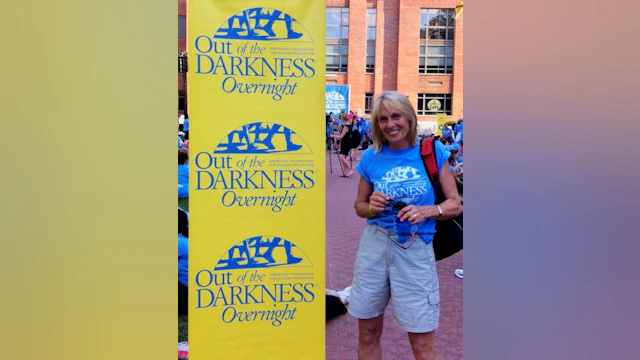Jan. 8, 2018- It’s been seven years, but my stomach clenches as I open my computer to write about those months of deep depression. Too vividly I recall lying in bed looking at the clock, waiting for the number to click to the next minute, because THIS minute was too excruciating to bear. But the next minute was no different, and so the minutes and hours and days passed.
I called in sick to the preschool where for twenty years I had shared the joys of music with children. In the past, they had fueled my creative energy; now I felt I had nothing to offer to them, or to anyone. I let the phone ring. I let my husband scavenge in an empty refrigerator for dinner. I felt myself coiling inward. And somewhere in those endless hours of ruminating about my uselessness, and about how I imagined I had failed the people I loved, I began to take comfort in a fantasy: that a disease would quickly take my life, and release my husband and grown children from the burden of me.
I knew they would grieve, but I also felt with absolute certainty that they would be better off without me. I was, I guess you’d say, passively suicidal. I couldn’t countenance the act of ending my life, which I knew would permanently wound my loved ones. But my not being in the world seemed like the best possible outcome for everyone.
This wasn’t my first encounter with depression. In the past, the support and expertise of psychiatrists – both therapists and psychopharmacologists – had helped me regain joy and purpose. Now, treatment wasn’t working. New meds were tried and abandoned. My depression, during this time, seemed resistant to previous strategies. It was time to try something else.
My doctor presented the possibility of ECT, electro-convulsive therapy. Stunned, I could barely hear his reassurances about the treatment: that it bore little resemblance to the brutal movie version of “shock treatment,” and that the carefully controlled brain seizure was one of the most effective available treatments, essentially a “re-booting” of the brain. The treatment would last several weeks, with the procedure taking place several times a week.
Desperate, I acquiesced. Days later, after a meeting with the doctor who was to administer the treatment, and a careful assessment of my mental and physical states, I walked in abject terror down the long hallway towards the door marked Electro-Convulsive Therapy.
Every single person who was involved in my treatment, from the nurse who greeted me calmly that spring morning, to the operating room technician who wheeled me into the treatment room, to the anesthesiologist who looked into my eyes and said, “We’ll take good care of you,” before inserting the IV, was kind, unrushed, and calm.
And then I was in the recovery room, with a sweet woman offering me juice and English muffins. A dear friend came to drive me home, and sat at the kitchen table with me to make sure I was okay. She organized a rotation of friends who supported me through the weeks of treatment.
Slowly, I got better. I could begin to see beyond myself again, to notice what was happening around me. I was well enough – slowly, at first – to be able to pick up where I’d trailed off with my work and family. I regained the weight I’d lost, I started exercising again, and I began to feel part of the world.
Since those dark days, I have rejoiced in our youngest’s graduation from college, in the weddings of two children and the arrival of our first grandchild. I have collected fall leaves to press between the pages of a dictionary. I’ve learned the names of 35 Central American second graders who greet me enthusiastically each Thursday morning at the school where I volunteer. I’ve comforted my ailing parents and hailed the gigantic full moon rising from the horizon. I’ve planted bulbs and argued politics.
I’m deliciously alive, even though I felt so sure, six years ago, that my demise would be better. There are occasional dark days, and sometimes even a few bad days strung together. But now I know that it’s a temporary, aberrant state: I’ll wait it out, ask my husband and my therapist for support, and make myself work up a sweat on the elliptical. And then that phase will pass.
Mental health is something we all must manage, and help looks different for everybody, whether it’s in the form of therapy, medication, or treatment like ECT. Different tools may work at different times. The important thing is to hold on through the bad periods, and reach out for support when you need it.
I’m boundlessly grateful for all the care and love I received when I was sick, and I know now that I was worth it.
